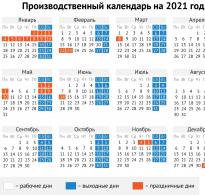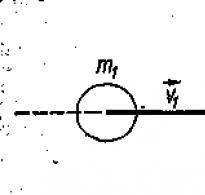Electrician's Day: history of the holiday. Power Engineer's Day in Russia When is Power Engineer's Day in the year?
The day of the energy worker is approaching. This is a professional holiday for all workers in the energy industry. It covers all specialties that are associated with the transmission, generation and marketing of all types of energy. It is difficult to overestimate the importance of specialists in this industry. Therefore, on this day, every person has the opportunity to thank them for the warmth in their home. In this article you will find out when Energy Engineer's Day is in 2018, what date it is, the history of the holiday, as well as the main traditions of the celebration.
Energy Day celebration date
The holiday is celebrated on the shortest day of the year. And this is symbolic. After all, on cold winter evenings, every person desperately needs warmth and comfort. And specialists in this profession provide heat to schools, hospitals and every apartment.
Holiday date: December 22. The date of the holiday was set 30 years ago on the third Sunday of December, but with the declaration of independence of the country, the government decided to return the previous date, set 50 years ago. In Ukraine, the holiday is also celebrated on December 22. Among the countries of the former USSR, only Kazakhstan will celebrate this holiday on the third Sunday of December.
history of the holiday
The history of Energy Engineers Day dates back to 1966. It was on this day that the decree was issued according to which Energy Day was founded. December 22 is the day that has the shortest amount of light. It is not known whether this was taken into account when choosing the day of celebration. But it turned out very symbolic. After all, it is the workers of the energy industry who give every resident of the country the warmth that is so necessary, especially on the coldest and darkest day of the year.
However, in 1980, Energy Engineer Day was moved to the third Sunday in December. It was this date that was used until the collapse of the USSR. In the modern history of Russia, the date of celebration of Energy Day was again moved to the original date. Since then, the official professional holiday of all energy workers is celebrated on December 22 in most countries of the post-Soviet space.

Development and importance of the industry
Energy workers are one of the most in-demand professions in the labor market. After all, it is difficult to imagine life, work and the development of technology without electricity. Not a single modern electrical device can operate without electricity. In addition, if the electricity goes out, the metro, trolleybuses and trams will stop, computers and televisions will turn off. The city remains paralyzed.
The energy industry in our country began its development back in 1920, when a long-term program for the development of the industry was developed. After which a complete reconstruction of production, the national economy and other industries began, taking into account the use of electricity.
Therefore, it was decided to build 40 power plants throughout the country. This plan was supposed to be fully implemented within 15 years, however, thanks to the determination of the management and performers, all power plants were fully built, and the industry was transferred to the electricity use mode, after 11 years.
During the war, the development of the industry stalled, but immediately after its end, development began to gain momentum again. In the 50s of the last century there was a revolution in the field of electricity. The concept of a “peaceful atom” came into life, so the construction of nuclear power plants began actively. At the same time, the construction of powerful hydroelectric power plants was also underway, which were located in Siberia.
All powerful facilities in the energy industry were built during the USSR period. In the 80s of the last century, a crisis began that also affected the energy industry. Due to increased electricity consumption and the lack of new energy facilities, this industry was in crisis. It was necessary to commission new power plants and repair old ones, but there were no funds for this work.
In the 90s, almost all production in the country stopped, so energy consumption decreased. The main problem of the industry during this period was the lack of transparent financial reporting. Because of this, millions were lost every year that could have been used to develop the industry.
Nowadays, the energy industry is one of the main ones in the country. Enormous funds are allocated for its development and modernization. However, the same active development and global construction that took place in the 20s of the last century can no longer happen.

Traditions and customs of the holiday
On the professional holiday of energy workers, they receive congratulations from top officials of the country, heads of enterprises, as well as their colleagues. The most diligent and valuable employees are awarded diplomas, certificates, valuable prizes and monetary incentives. Also, in connection with the holiday, the best workers in the industry receive the honorary title of “Best Energy Engineer of Russia.”
On this day, various programs are broadcast on television and radio on the topic of Energy Worker's Day, the development of the industry, the most significant energy workers, as well as the construction of the largest and most significant facilities in the energy industry.
This holiday is important not only for people whose professional activities are closely connected with it. After all, it is difficult to imagine the life of any person without the constant use of electricity, not to mention the development of modern technologies.
Energy workers try to celebrate the holiday with their families. Although every enterprise organizes corporate parties, festive concerts and awards ceremonies for the best employees.
In this article you found out when Energy Engineer Day is in Russia. If among your acquaintances, friends or relatives there are representatives of this wonderful profession, be sure to congratulate them and wish them the same warmth and comfort that they give to every person through their professional activities.
In Russia there are a large number of holidays that are dedicated to people of one profession or another. This is housing and communal services workers, Fireman's Day and so on. One of these holidays is Electrician's Day, which we will talk about now.
It is worth noting in advance that this holiday is in no way a day off. Electrician's Day is celebrated on December 22. An interesting fact is that this is perhaps the shortest of the entire year. Accordingly, it is on December 22 that the work of the power engineer becomes most noticeable. By the way, Energy Engineers Day is celebrated by all those who are in one way or another connected with the industry, which covers the generation, transmission and further sale of thermal and electrical energy to consumers.
This holiday was approved back in the USSR. This happened in accordance with the decision of the Presidium of May 23, 1966. What was the reason for issuing such a decree? Famous This plan was adopted back in 1920 during the Eighth All-Russian Congress of Soviets. Most of all, the GOELRO plan was remembered by the common man as “Ilyich’s light bulb.” Such equipment is still used in some places today. “Ilyich’s light bulb” is an ordinary household one that is used without a lampshade. This concept arose in the same 1920, when the leader of the world proletariat himself attended the opening of a power plant in the village

Kashino. That was only the very beginning of the implementation of the GOELRO plan. Together with the power plant in Kashino, it was planned to build 30 power plants throughout the country. Vladimir Ilyich planned the reconstruction of absolutely all sectors of the national economy. To the satisfaction of the leadership of the country of Soviets, the plan was completed over the next 11 years. And after 15 years, by 1935, it was exceeded three times.
Returning directly to the holiday, we can recall another significant date. On November 1, 1988, a government agency such as the PVS issued a decree regarding Energy Engineers Day. In accordance with this decree, its celebration was postponed, now it was a day that fell on the third Sunday in December. But recently, this decision was secretly canceled, and December 22 again became Energy Worker’s Day. But at the same time, some organizations remained committed to the PVS decree.

In addition to the fact that Electrician's Day is celebrated on December 22 in the Russian Federation, it is also celebrated in some countries: Kazakhstan, Armenia, Kyrgyzstan, Ukraine and Belarus.
As for such an aspect as congratulations for Energy Engineer's Day - most of them must certainly be cheerful, perky and interesting. In itself, such a holiday does not particularly stand out, but if you congratulate your friend with a funny poem or an amusing parable, it will definitely be remembered. For example, congratulations on Energy Worker’s Day, which was very relevant in 2012: “You canceled the end of the world once again and gave light to people again! Thank you for that!".
If we consider the dates of professional holidays, we can see two options for how they are established. The first is that the holiday is established at the legislative level on a certain day of the week of a specific month. For example, the third Sunday in August, the second Saturday in October, and so on. The dates of such professional holidays are called “floating”.
As for what date is Energy Engineer's Day in 2017, the date does not change from year to year, that is, at the legislative level it is established according to a specific second scheme, when a specific number is assigned to the holiday, which from year to year is an omen arrival Thus, December 22 is Energy Engineer’s Day in 2017, what date is it in Russia.
Who should we congratulate?
In 2017, the holiday date, December 22, falls on a Tuesday. Even if it is a working day, the middle of the week and the time closest to the New Year, you must not forget to congratulate people for whom the date is a professional holiday. These are friends, relatives and acquaintances whose professions are directly or indirectly related to the generation, transmission, and sale of electrical and thermal energy.
From the history of establishing the date
We know that Energy Engineer's Day in 2017 is celebrated on December 22. This has been the case since 1920, when at the 8th All-Russian Congress of Soviets this holiday was established in memory of the day of the State Plan for Electrification of Russia, which was briefly called “GOELRO”, and with that name it remained in history.

True, as for the dates of celebration, they differed. In 1988, it was decided to celebrate Energy Worker's Day on the third Sunday of December. In modern Russia, this first approach to establishing dates was maintained for a long time. But energy workers began to complain that due to the floating date of the celebration it was inconvenient to hold, and many people completely forgot about this event. Then a new decision was made that Energy Engineer’s Day in 2017, which date will be celebrated every year, is December 22. Relevant on the holiday table.
About the meaning of the holiday
Separately, we can talk endlessly about the meaning of each professional holiday. First of all, of course, this is an incentive for every employee in a certain field. The incentive to feel especially acutely once a year how important their work is for the country as a whole.
It turns out that the main meaning of Energy Worker’s Day is to pay tribute, to show respect and respect to workers in the energy industry. Their work, of course, is hard, but it is thanks to it that we have light and warmth in our houses and apartments, at work and in public institutions. This holiday is aimed at expanding the public’s understanding of the energy profession and telling them that it is prestigious and worthy to be one.

Another interesting fact is related to the fact that on December 22 the Energy Engineer’s Day is celebrated in 2017, on what date. This is the day of the winter solstice, that is, the shortest day of the year, as well as the longest night. It is on December 22 that in our country, and throughout the world, the work of power engineers is especially in demand. So, those who are on duty on this day do not need to be greatly distracted by congratulations; it is better to postpone the festive events to the weekend. In honor of the holiday you can do
Below is some background information.
On December 22 in Russia, workers in the energy industry celebrate their professional holiday - Energy Worker's Day. It was established by decree of the Presidium of the Supreme Soviet of the USSR on May 23, 1966. In memory of the day of adoption of the State Plan for the Electrification of Russia (GOELRO), the date of celebration of Power Engineer's Day was determined to be December 22 (the opening day in 1920 of the VIII All-Russian Congress of Soviets, which adopted the plan).
By a decree of the Presidium of the Supreme Soviet of the USSR dated November 1, 1988, the date of the professional holiday was moved to the third Sunday of December - a day off. But due to the continuous work schedule of power engineers, Sunday has always been a working day for the majority of industry workers. Moreover, they continued to consider December 22 as Energy Engineer's Day.
To restore the historically justified date for the celebration of Power Engineer's Day and at the request of the All-Russian Industry Association of Electric Power Industry Employers and the public association "All-Russian Electrical Trade Union", by decree of the Russian government of December 21, 2015, the date was returned to December 22.
The electric power industry is a basic sector of the Russian economy, providing electric and thermal energy to the internal needs of the national economy and population, as well as exporting electricity to the CIS countries and non-CIS countries. Sustainable development and reliable functioning of the industry largely determine the country's energy security and are important factors in its successful economic development.
The GOELRO plan became the starting point in the creation of a domestic electric power system, as well as the first scientifically based long-term economic development program in the country. It was designed for 10-15 years and provided for a radical reconstruction of the national economy based on electrification (construction of large enterprises, construction of 30 regional power plants, including ten hydroelectric power stations (HPPs), with a total capacity of 1.75 million kilowatts and an annual output of 8.8 billion kilowatt. The plan was completed by 1931.
In the 1950s, the industry received an additional boost from scientific developments in atomic energy and the construction of nuclear power plants. In subsequent years, large-scale development of the hydropower potential of Siberia took place.
The main energy capacities and electric power facilities in Russia were built during the Soviet period. However, already at the end of the 1980s, signs of a slowdown in the pace of industry development began to appear: the renewal of production capacity began to lag behind the growth in electricity consumption. In the 1990s, the volume of electricity consumption decreased significantly, while at the same time the process of capacity renewal practically stopped. In terms of technological indicators, Russian energy companies seriously lagged behind their counterparts in developed countries; the system lacked incentives to increase efficiency, rational planning of electricity production and consumption modes, and energy saving; due to reduced control over compliance with safety rules and significant deterioration of assets, there was a high probability of major accidents .
In addition, due to the difficulties of restructuring the economic and political systems of Russia, there was no payment discipline in the industry (the so-called “crisis of non-payments”), enterprises were informationally and financially “opaque,” and access to the market was denied to new, independent players.
In the early 2000s, the Russian government set a course for liberalizing the electricity market, reforming the industry and creating conditions for attracting large-scale investments in the electricity sector.
From 2001 to 2008, in accordance with the government decree of July 11, 2001 “On reforming the electric power industry,” transformations were carried out in the electric power industry. Currently in Russia there are wholesale and retail electricity markets, the prices of which are not regulated by the state, but are formed on the basis of supply and demand.
The structure of the industry also changed: a separation was made between naturally monopolistic (electricity transmission, operational dispatch control) and potentially competitive (electricity production and sales, repair and service) functions; Instead of the previous vertically integrated companies that performed all these functions, structures specializing in certain types of activities have been created.
Trunk networks came under the control of the Federal Grid Company, distribution networks were integrated into interregional distribution network companies (IDGC), the functions and assets of regional dispatch departments were transferred to the all-Russian System Operator (SO UES - System Operator of the Unified Energy System).
During the reform process, generation assets were united into interregional companies of two types: wholesale market generating companies (OGKs) and territorial generating companies (TGKs). WGCs united power plants specialized in the production of almost exclusively electrical energy. TGCs include mainly combined heat and power plants (CHPs), which produce both electrical and thermal energy. Six of the seven WGCs were formed on the basis of thermal power plants, and one (RusHydro) was formed on the basis of hydro-generating assets.
The Unified Energy System of Russia (UES of Russia) consists of 70 regional energy systems, which, in turn, form seven unified energy systems: East, Siberia, Urals, Middle Volga, South, Center and North-West. All power systems are connected by intersystem high-voltage power lines with voltages of 220-500 kilovolts and higher and operate in synchronous mode (in parallel). The electric power complex of the UES of Russia includes about 700 power plants with a capacity of over five megawatts. The network infrastructure of the UES of Russia includes more than 10,700 power transmission lines with a voltage class of 110-1150 kilovolts.
As of January 1, 2017, the total installed capacity of power plants of the UES of Russia was 236.34 gigawatts, and the total installed capacity of power plants, taking into account technologically isolated power systems, was 244.1 gigawatts. Isolated areas include energy districts in the energy systems of the Chukotka District, Kamchatka, Sakhalin and Magadan regions, Norilsk-Taimyr and Nikolaev energy districts, and the energy systems of the central and northern parts of Yakutia.
In 2016, electricity generation in Russia, including electricity production at power plants of industrial enterprises, amounted to 1071.8 billion kilowatt-hours (according to the Unified Energy System of Russia? 1048.5 billion kilowatt-hours). In the first half of 2017, electricity generation in Russia as a whole amounted to 539.2 billion kilowatt-hours, which is 1.3% more than the production volume in the same period of 2016. Electricity generation in the Unified Energy System of Russia for the six months of 2017 amounted to 529.0 billion kilowatt-hours, which is 1.8% more than the same period in 2016.
On their professional holiday, all power engineers and workers whose activities are connected in one way or another with the energy sector accept congratulations from government officials, colleagues, family, friends and loved ones.
It is difficult to exaggerate the importance of energy in our lives, because the viability of all other sectors of the economy and comfort, warmth and light in our homes depend on it. Without energy drinks, we would freeze in the dark, deprived of many of the benefits of civilization.
Story
The date of the celebration was not chosen by chance. On this day back in 1920, the state plan GOELRO was adopted, which identified the most important stages of electrification of the entire country.
People learned about this electrification plan thanks to the famous “Ilyich light bulb,” which went down in history. This phrase began to be used in the USSR to refer to household incandescent lamps that were used without a lampshade.
A. Ignatov
The plan was designed for 10-15 years and provided for the construction of 30 power plants throughout the country with further radical reconstruction of all sectors of the national economy. In fact, it was achieved by 1931, and in 1935, when all 15 years had expired, the main indicators were exceeded three times.
The holiday itself was established by government decree decades later - in 1966. Later, on October 1, 1980, a new government decree was issued, according to which the celebration of this day was moved to the third Sunday of December.
The holiday was then moved again to December 22. But even now in some organizations throughout the country this holiday is celebrated on the 3rd Sunday of December.
Since those time immemorial, Russian energy industry has been constantly developing and improving. The emergence of such a concept as a “peaceful atom” did not let energy workers get bored - the industry developed rapidly and continues to do so to this day.

© photo: Sputnik / Pavel Lisitsyn
Recently, throughout the world, the interest of specialists in environmental energy sources, such as solar, wind energy, air, and so on, has grown quite strongly. Russia is no exception, as this contributes to the further growth of the potential of the energy industry.
About the profession
The energy profession has always been and will be not only one of the most important and honorable, but also one of the most significant and vital for residents of all countries and peoples.
Millions of energy workers around the world work every day and every moment to bring light, warmth and comfort to our homes.
Energy workers are engaged in the field that is associated with the generation of electricity and thermal energy. They maintain and repair equipment, networks, and supporting infrastructure.
The path to the profession begins after graduation from a specialized higher or secondary specialized educational institution. A specialist must have knowledge of physics and mathematics in order to correctly perform measurements, install and maintain devices and communications.Representatives of this profession are quite in demand on the labor market. Despite the fact that universities produce a large number of specialists in this field, many companies and many enterprises require qualified power engineers.
Energy drinks are associated with activities hazardous to health and life. They are often forced to work in harsh climatic conditions and eliminate accidents, many of which arise due to worn-out networks.
Traditions
This holiday unites all people involved in the energy industry, everyone who works or has once worked in the energy industry. They are joined by teachers, students, graduates of specialized educational institutions, and residents of settlements for which energy production is a city-forming industry.
Despite the fact that in Russia Power Engineer’s Day is an ordinary working day, the holiday is celebrated quite solemnly both at the government level and in work collectives.

© photo: Sputnik / Besik Pipia
On this day, power engineers are congratulated by the country's leadership on their professional holiday. According to a good long-standing tradition, the best workers and veterans of the energy industry are celebrated on this day with high awards, certificates of honor and valuable gifts.
There are concerts and meetings, corporate parties at which power engineers are felt; many dedicate poems and prose, songs and films to them. The holiday is of particular importance for residents of cities that were built for the service personnel of energy generating enterprises. In such populated areas, events take place on a wide scale.
Energy Worker's Day is celebrated on December 22 in other post-Soviet countries. In particular, in Kazakhstan, Ukraine, Kyrgyzstan, Armenia and Belarus.
The material was prepared on the basis of open sources.






